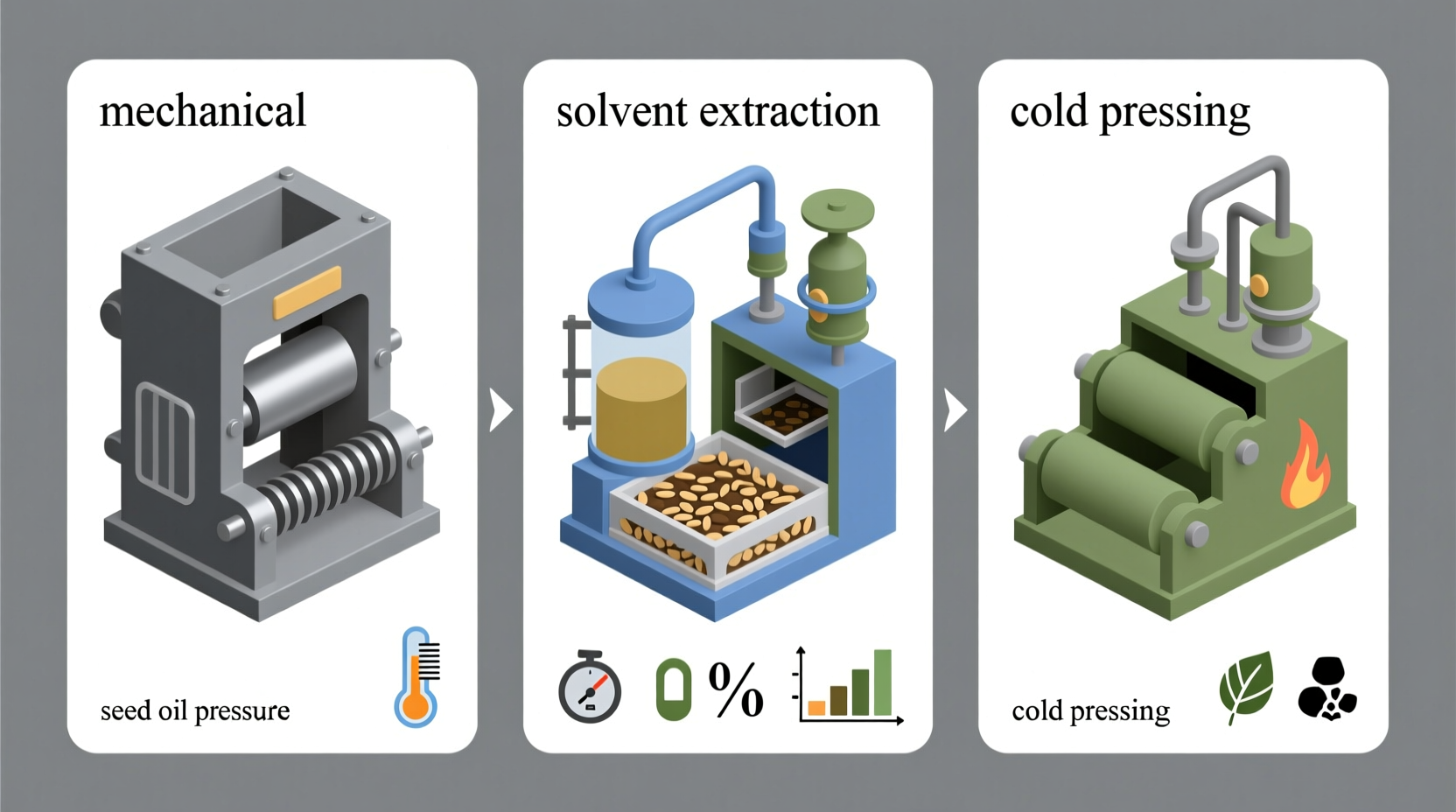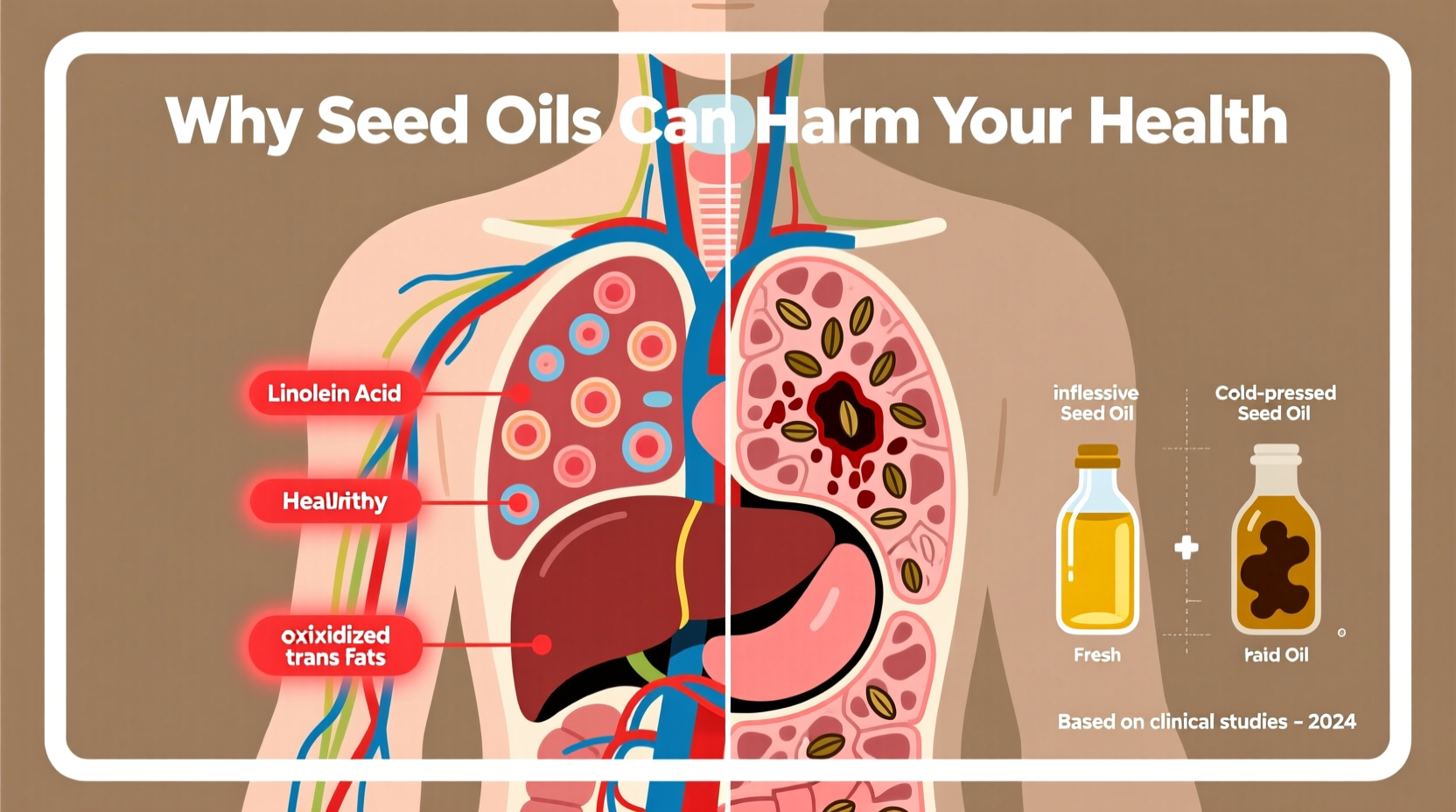Confused by the conflicting information about seed oils? You're not alone. Recent online discussions have painted seed oils as "toxic" or "industrial poisons," but what does the actual science say? This article cuts through the noise with evidence-based analysis from nutrition researchers and major health organizations.
What Exactly Are Seed Oils?
Seed oils—technically called vegetable oils in food science—are extracted from seeds like soybeans, corn, sunflower, and canola. Unlike olive oil (from fruit) or coconut oil (from nuts), these oils undergo industrial processing to extract fats from protein-rich seeds. Common examples include:
- Soybean oil (most widely consumed)
- Corn oil
- Sunflower oil
- Cottonseed oil
- Safflower oil
These became dietary staples after World War II when industrial production scaled up, replacing traditional animal fats in processed foods and restaurant frying.

The Omega-6 to Omega-3 Ratio Debate
The primary scientific concern about seed oils centers on their omega-6 fatty acid content. While both omega-6 and omega-3 are essential fats, modern diets often contain excessive omega-6 without sufficient omega-3 balance.
| Oil Type | Omega-6 Content | Omega-3 Content | Omega-6:3 Ratio |
|---|---|---|---|
| Soybean oil | 51% | 7% | 7:1 |
| Corn oil | 55% | 1% | 55:1 |
| Sunflower oil | 66% | 0% | High |
| Olive oil | 10% | 1% | 10:1 |
| Flaxseed oil | 15% | 53% | 1:3.5 |
According to research published in Biomedicine & Pharmacotherapy (2022), the optimal omega-6 to omega-3 ratio for reducing inflammation ranges between 2:1 and 4:1. The typical Western diet averages 15:1 to 20:1 due to heavy seed oil consumption.
Processing Methods: What Happens Before Bottling
Critics often highlight industrial extraction methods as problematic. Most commercial seed oils undergo:
- Hexane extraction: Chemical solvent removes maximum oil
- High-heat deodorization: Removes unpleasant flavors but creates trans fats
- Bleaching: Removes color compounds
The FDA acknowledges that refined seed oils contain trace trans fats (under 0.5g/serving), though these aren't required to be listed on labels. However, the American Heart Association maintains that even processed vegetable oils remain healthier than saturated fats when consumed in moderation.
What Major Health Organizations Actually Say
Despite viral claims, no major health authority recommends eliminating seed oils entirely. Here's what the evidence shows:
- The World Health Organization recommends replacing saturated fats with unsaturated fats—including vegetable oils—for cardiovascular health
- National Institutes of Health DASH diet includes soybean and corn oil as acceptable fat sources
- Harvard T.H. Chan School of Public Health states: "The benefits of vegetable oils for heart health are among the best-established findings in nutrition science"
A comprehensive review in Nutrition Reviews (2023) analyzed 40 years of research and concluded: "Current evidence does not support claims that vegetable oils cause systemic inflammation when consumed as part of balanced dietary patterns."
Practical Guidance for Consumers
Based on current evidence, here's what matters most for your health:
Don't Panic, But Be Mindful
Seed oils aren't "toxic," but excessive consumption without omega-3 balance may contribute to inflammation. The key is context:
- Restaurant meals: Most use seed oils for frying—enjoy occasionally but don't make habitual
- Processed foods: Check labels; products with "vegetable oil" often contain high omega-6 oils
- Home cooking: Rotate oils—use olive oil for low-heat cooking, avocado oil for medium heat, and save seed oils for high-heat applications where needed
Balance Your Fats
Instead of eliminating seed oils, focus on improving your omega-6 to omega-3 ratio:
- Add fatty fish (salmon, mackerel) 2-3x weekly
- Include walnuts, chia seeds, or flaxseeds daily
- Use canola oil (better ratio than soybean/corn) when seed oils are needed
Common Misconceptions Clarified
Myth: Seed oils cause Alzheimer's disease
Reality: No credible evidence supports this claim. The Alzheimer's Association states diet's role remains unclear, with no specific link to seed oils.
Myth: All seed oils contain harmful trans fats
Reality: Modern refining has reduced trans fats to negligible levels (under 0.5g/serving), well below amounts shown to affect health.
Myth: Seed oils were created by the food industry to make us sick
Reality: Soybean oil production scaled during WWII due to butter shortages, not corporate conspiracy. Historical data shows consumption increased alongside declining heart disease rates initially.
When Seed Oils Might Be Problematic
While generally safe, certain situations warrant caution:
- People with existing inflammatory conditions: Those with rheumatoid arthritis or IBD may benefit from reducing omega-6 while increasing omega-3
- Ultra-processed food consumers: When seed oils come packaged with sugar, refined carbs, and additives in processed foods
- High-heat reuse: Repeatedly heating seed oils beyond smoke point creates harmful compounds
For most people, moderate seed oil consumption as part of varied diet presents minimal risk according to current evidence. The real dietary concern remains excessive processed food intake—not seed oils specifically.











 浙公网安备
33010002000092号
浙公网安备
33010002000092号 浙B2-20120091-4
浙B2-20120091-4